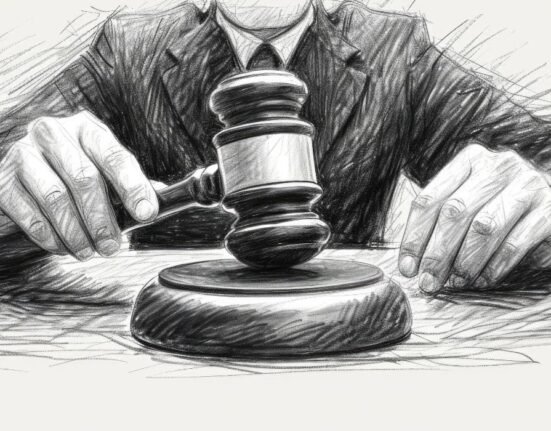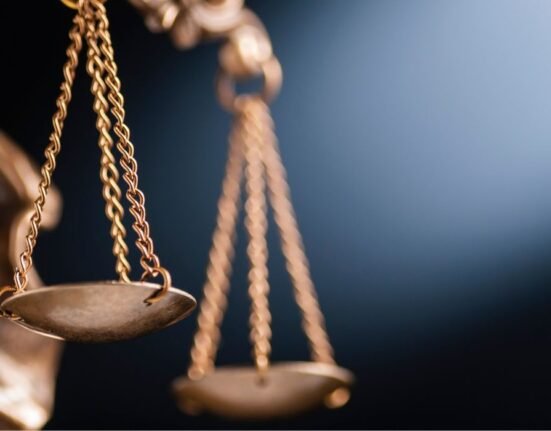Corruption is dishonest conduct or behaviour that is generally seen to be conducted by those in power. Corruption involves the act of bribery, influence peddling, favourism, nepotism and embezzlement and is characterized as a fraud or criminal offense. Authoritative figures who are known to be holding some kind of power or important position in society engages more in corruption and fraud, leading them to misuse the benefits that comes along with their power and position. People commit corruption out of greed for more money, resources, and power. In simple terms, corruption is a dishonest act that benefits the individual but largely impacts the government and other people, both socially and financially.
It’s a complex phenomenon and is largely variable. Corruption can be done on a smaller scale, known as petty corruption, where people take small favours from smaller groups of people and it doesn’t cause much harm. Whereas the large-scale corruption involves affecting the government. Systematic corruption is a term given to corruption which is so repetitive, that it is a part of society and occurs almost every day as if corruption is a rule that has to happen instead of an exception that takes place once or twice.
Also Read: The Psychology of Temptation
Examples of corruption
Corruption is an illegal act and mostly seen to be done by those holding power or those who are wealthy enough to use their power to get any work done. There are so many examples from daily life when the act of corruption is seen and people become corrupt for that. A politician in greed for more votes by using money power may become corrupt. Sometimes, government breaks the tax for wealthy people and provide them extra resources instead of giving it to those who are financially vulnerable and are actually in need of tax deductions, this is corruption and is highly deteriorating. People even goes bank corrupt more often, especially the politicians and rich people. Corruption impacts everyone largely, but it have a huge negative effect on the weaker, vulnerable ones. Corruption leads to mistrust and betrayal of democracy, growth and development.
A few types of corruption
- Corruption is the act of bribery where people give extra money or gifts to get their work done conveniently before anyone else. In day-to-day life, there are so many cases of bribery. The most common example includes bribing the traffic police with money when got caught breaking traffic rules and being asked to pay a fine.
- Influence peddling is another type of corruption, similar to bribery where people influence or use advantages of connections with authority to obtain favors and high treatment in exchange for money.
- Favouritism, nepotism, and clientelism are illegal means of gaining benefits because one is a family member or a known member of the authority. Nepotism is most commonly seen in the film industry, where actors choose their family members to get into acting. Also, vacant seats of jobs are filled by favourism. Even if one is not qualified for the role and someone better is out there waiting in the queue, they get the advantages and priority because of nepotism and favoritism.
- Frauds involve using tactics and influences to convince the owner of funds to give access to the unauthorized party, this leads to corruption. It is mostly seen in institutions where the funds given by the government for maintaining the institution’s infrastructure, and facilities are used by the staff members for their personal benefits.
Also Read: The Dangerous Reality of the Dark Web
Causes of corruptions
There are multiple causes of such an act of corruptions performed or practiced by individuals on all levels and almost on regular basis.
1) Lack of awareness:
When people are not well educated or aren’t aware about corruption, they won’t be able to speak up against the practice or they’ll be fooled easily by others. Even if they have a slight idea about it, they still decide to remain quiet as they don’t have enough courage to speak about it or are afraid what if the corrupt individual get to know about the complainers. Many times, they just cover for the corrupt individuals thinking it’s not a big deal.
2) Considering personal interests over serving others:
Most politicians and other political leaders get into politics, forming different parties just for their own interests to get money, power, and fame. Political leaders don’t think about or consider other people’s interests, not providing them with services and facilities once promised, which makes the public feel betrayed.
3) Lack of transparency:
When the public work is done privately instead of showing it to others, it increases the corruption level as now the institutions and leaders don’t have to give answers to the public and the public won’t be able to question.
4) Not taking necessary actions for practices of corruption:
Once the corruption is detected and the person gets caught doing illegal things, they just get charged with some penalties and fine which they can easily pay and get rid of the charges. So they don’t really fear of the consequences once they get caught getting involved in acts of corruption and repeat it again and again whenever they get a chance. No strictness by the authority leads to increase in corruption cases.
Also Read: The Psychology Behind Memory Distortion
5) Personal greed:
The most common and basic cause of increasing corruption practices is giving preference to Personal greed. Personal greed increases when the individual considers wants over needs. They are never satisfied with what they have and want more money, power and fame, even if it means getting involved and practicing illegal ways like corruption.
Effects of corruptions
Corruption impacts the person getting involved in such illegal actions to a great extent. Corruption leads to financial losses. It leads to forming bad reputation at work place among colleagues. Corruption also reduces the employees morale when gets caught by any chance. Also, it diverts the focus of workers from completing tasks and achieving goals to looking up for ways to indulge in corruptive behaviours.
Once get caught, the individuals may have to face the allegations. The authority takes disciplinary actions against the corruption individuals. They may even lose their jobs and have to face penalties and high charges and even leads to getting in jail. Corruption damages the person’s relationships and can make the person isolate from others. Not only the corruptor faces such adverse effects of corruption, but other people also have to suffer the consequences. They have to face limited resources availability. There’s unequal resource allocation due to corruption. Other people feels hard to maintain trust and hesitates to further do business or any kind of work with them in fear of corruption and cheating again.
Prevention of corruption
Corruption increases the number of crime cases happening these days and leads to distrust and feelings of hatred among individuals. It leads to rise in criminally offensive activities. However, there is nothing that can’t be controlled or Prevented if taken certain necessary measures.
1) Regulations through rules and laws:
Certain codes of conduct can be set to avoid situations of conflicts, where corruption is most expected to happen or takes place so often like in financial industries. Strict laws or rules can be applied to such areas and if the rules are not followed, then the rule breaker must be charged with high penalties or fines.
Also Read: Oh Criminal! What you do think?
2) Accessible reporting facilities:
There are so many cases where people witness the act of corruption happening around them and still decides to stay silent because they consider it unnecessary or unfeasible to report it to authorities and some people even fears of their safety and privacy. So, corruption could be prevented by providing people with easy reporting facilities, keeping one’s privacy intact. People should be assured that there reporting has not gone in vain and that certain actions like penalties, detention, jailing and other legal actions will be taken into consideration against those practicing the act of corruption.
3) Checking the Environment and backgrounds:
A strong, positive and healthy environment decreases the corruption and crime rates. It could be maintained when the managers or boss of companies hire and give promotions to the employees by checking their backgrounds carefully.
4) Education and teaching related courses to enhance one’s understanding:
Education and making people get aware of corruption is the best way to stop and prevent illegal actions like crime or corruption. When people are well educated, they’ll be able to identify the acts of corruption or bribery and will take necessary actions to report it to the responsible authorities. When one reports corruption, the number further gets reduced. People should be taught anti-money laundering courses and managers and executives should promote a culture of honesty and trust at work place.
References+
https://www.investopedia.com/terms/c/corruption.asp#:~:text=Forms%20of%20government%20corruption%20include,opponents%20to%20hold%20onto%20power.
https://www.ibac.vic.gov.au/impacts-corruption#:~:text=damage%20to%20employee%20morale,and%20services%20to%20the%20community
https://blog.iese.edu/ethics/2014/11/06/corruption-10-possible-causes/
https://www.investopedia.com/terms/c/corruption.asp













Leave feedback about this